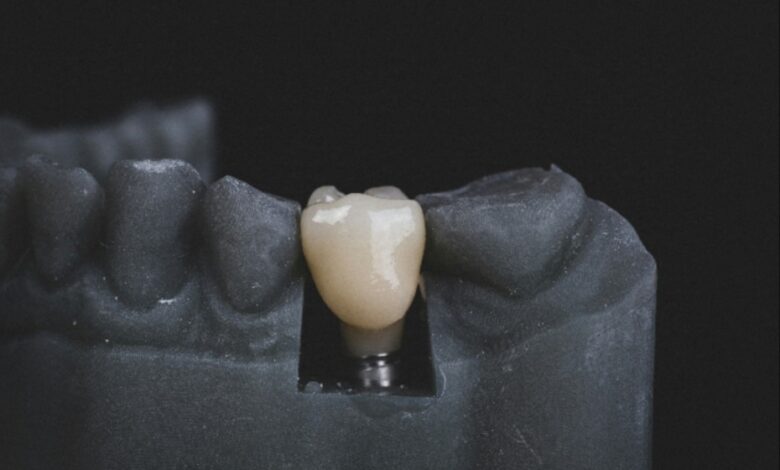What Are the Long-Term Benefits of Dental Implants?

Missing teeth can affect more than just your appearance. Over time, they can lead to bone loss, shifting of surrounding teeth, and difficulty eating or speaking clearly. That’s where dental implants come in. They’re not just a cosmetic fix—they offer a long-lasting solution that functions much like a natural tooth. But what are the long-term benefits of dental implants, and why do so many people now prefer them over dentures or bridges?
In this blog, we’ll explore how dental implants work, what makes them a reliable option, and the key long-term advantages they offer for both oral health and daily life.
What Are Dental Implants and How Do They Work?
A dental implant is a small titanium post that is surgically placed into the jawbone where a tooth is missing. It acts as a replacement root, supporting a crown, bridge, or denture. Over time, the implant fuses with the bone in a process known as osseointegration, creating a strong and stable base.
Unlike removable dentures, dental implants are fixed in place. This means they don’t shift or move, and they look and feel like natural teeth.
Improved Appearance and Confidence
One of the most noticeable benefits of dental implants is how natural they look. Because they are custom-made to match the colour, shape, and size of your existing teeth, they blend in seamlessly. Over time, you may forget which tooth was replaced.
For many patients, the confidence gained from having a complete, natural-looking smile can be life-changing. There’s no need to worry about gaps, loose dentures, or avoiding photos. With dental implants, you can smile, laugh and speak with ease.
Long-Term Durability
Dental implants are known for their durability. With good care, they can last 20 years or more—and in many cases, a lifetime. This makes them one of the most cost-effective long-term solutions for tooth loss, especially when compared to dentures or bridges, which may need replacing every 5 to 10 years.
Titanium, the material used for the implant post, is strong, lightweight, and biocompatible, meaning it’s unlikely to be rejected by the body.
Prevents Bone Loss in the Jaw
When a tooth is lost, the jawbone underneath begins to shrink due to lack of stimulation. This process is called bone resorption. Traditional tooth replacement options like dentures or bridges sit on top of the gum and do not stimulate the jawbone.
Dental implants, however, act like natural roots and keep the jawbone active. This helps to preserve facial structure, preventing the sunken look that can come from long-term tooth loss and bone shrinkage.
Supports Surrounding Teeth and Prevents Shifting
When there’s a gap in your teeth, neighbouring teeth can begin to shift out of place, leading to misalignment. This can affect your bite and make it harder to clean your teeth properly, increasing the risk of decay and gum disease.
Dental implants fill the space and keep surrounding teeth in their correct position. They provide structural support, helping to maintain proper alignment and overall oral health.
Better Functionality for Eating and Speaking
Unlike traditional dentures, which can slip or feel unstable, dental implants are fixed securely in your jaw. This means you can bite and chew with confidence, enjoying a wider variety of foods without discomfort.
They also improve speech. Dentures can cause mumbling or clicking sounds if they don’t fit well. Implants function just like natural teeth, allowing you to speak clearly without fear of embarrassment.
Easy to Maintain
One of the key advantages of dental implants is how easy they are to care for. You brush and floss them just like your natural teeth. There are no special adhesives, soaking solutions, or extra maintenance routines needed.
As long as you maintain good oral hygiene and attend regular check-ups with your dentist at Revo Dent, your dental implants should remain in excellent condition for years to come.
No Impact on Healthy Teeth
With dental bridges, the teeth on either side of the gap need to be filed down to support the bridge. This involves altering otherwise healthy teeth, which can lead to long-term problems if those teeth weaken over time.
Dental implants don’t rely on adjacent teeth for support. They stand alone, which means your healthy teeth remain untouched and intact.
A Cost-Effective Investment Over Time
While dental implants may seem more expensive initially compared to dentures or bridges, their long-term durability makes them a cost-effective investment. You won’t need replacements or adjustments as frequently, and you’re less likely to need follow-up treatments for related issues like bone loss or gum irritation.
In short, dental implants offer lasting value—both financially and in terms of quality of life.
Who Is a Good Candidate for Dental Implants?
Most adults in good general and oral health are suitable candidates for dental implants. The key factors your dentist will consider include:
- The health of your gums
- Adequate bone density in the jaw
- Non-smoker or willingness to quit smoking
- Commitment to good oral hygiene
Even if you’ve been missing teeth for a long time or have some bone loss, bone grafting procedures can often prepare the jaw for successful implantation.
How Long Does the Dental Implant Process Take?
Getting dental implants is a multi-step process that takes place over several months. This includes consultation, scans, implant placement, healing time (usually a few months), and finally, fitting the crown.
While the treatment requires patience, the results are long-lasting and can significantly improve both function and appearance.
Conclusion
Dental implants are more than just a modern tooth replacement option—they’re a long-term investment in your oral health, appearance, and day-to-day comfort. From improved confidence and natural function to preserving jawbone health and supporting your remaining teeth, the long-term benefits of dental implants make them one of the most effective solutions available.
If you’re missing one or more teeth and want a lasting solution that looks and feels just like the real thing, speak to your dentist about whether dental implants are right for you.


